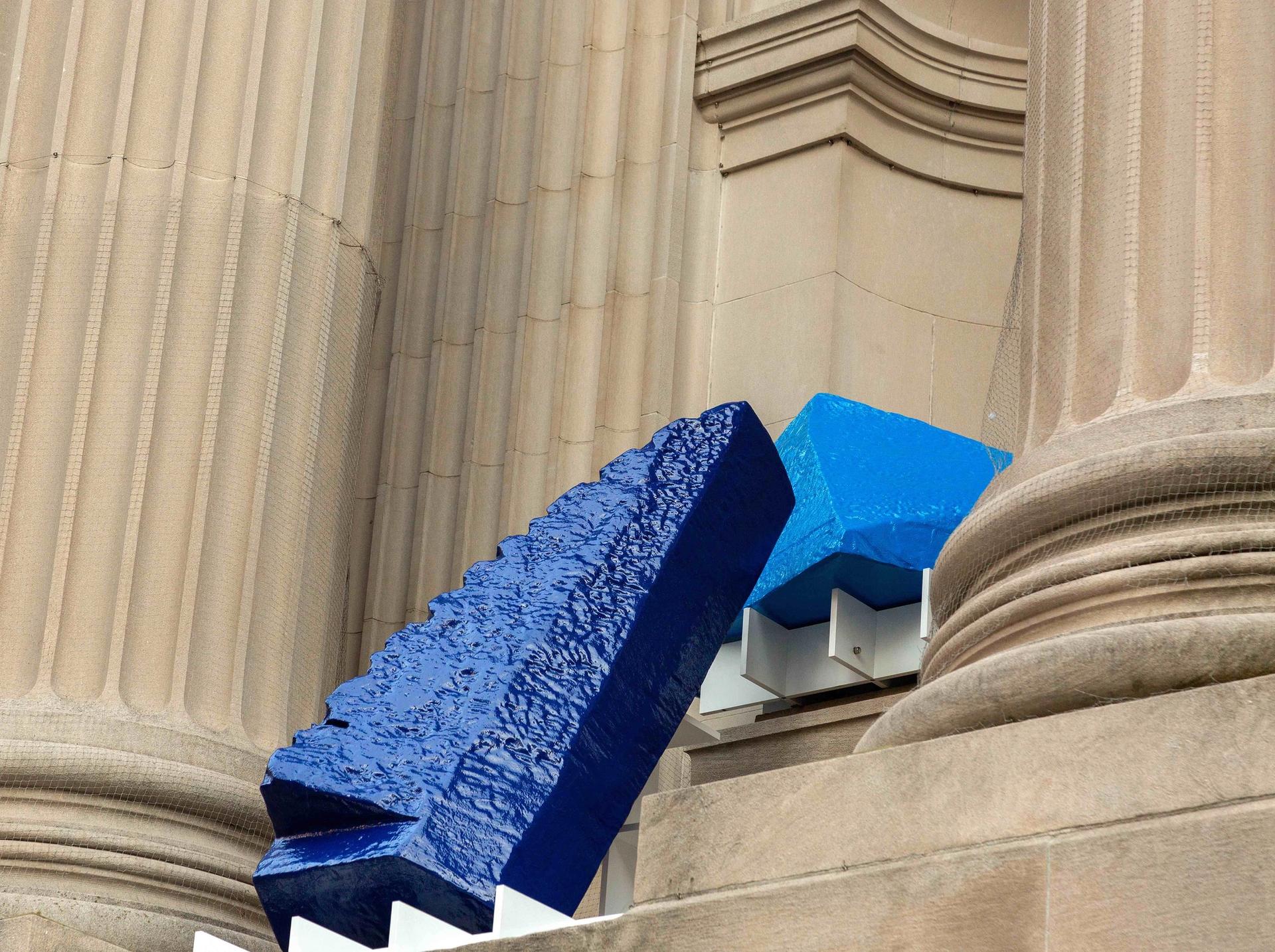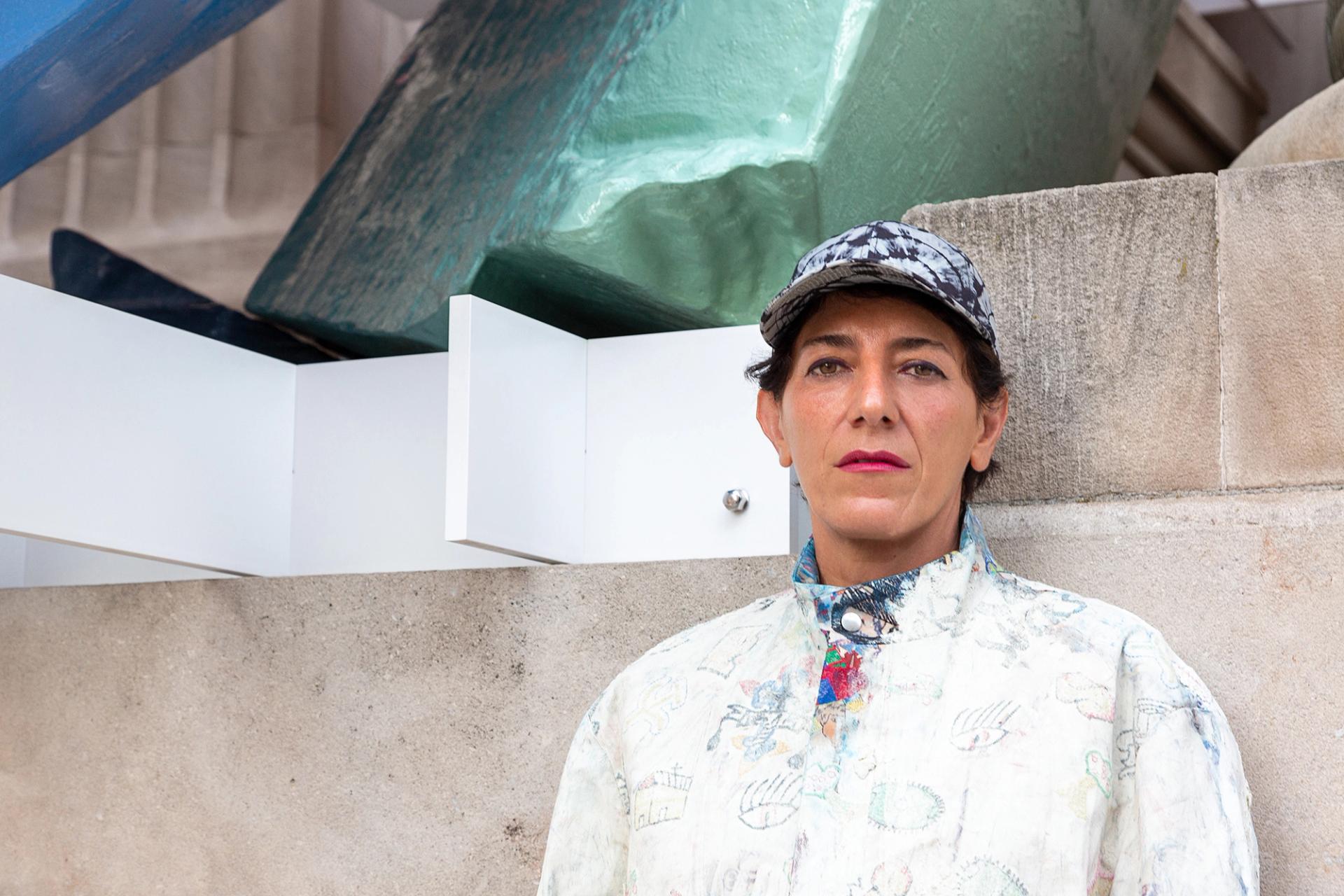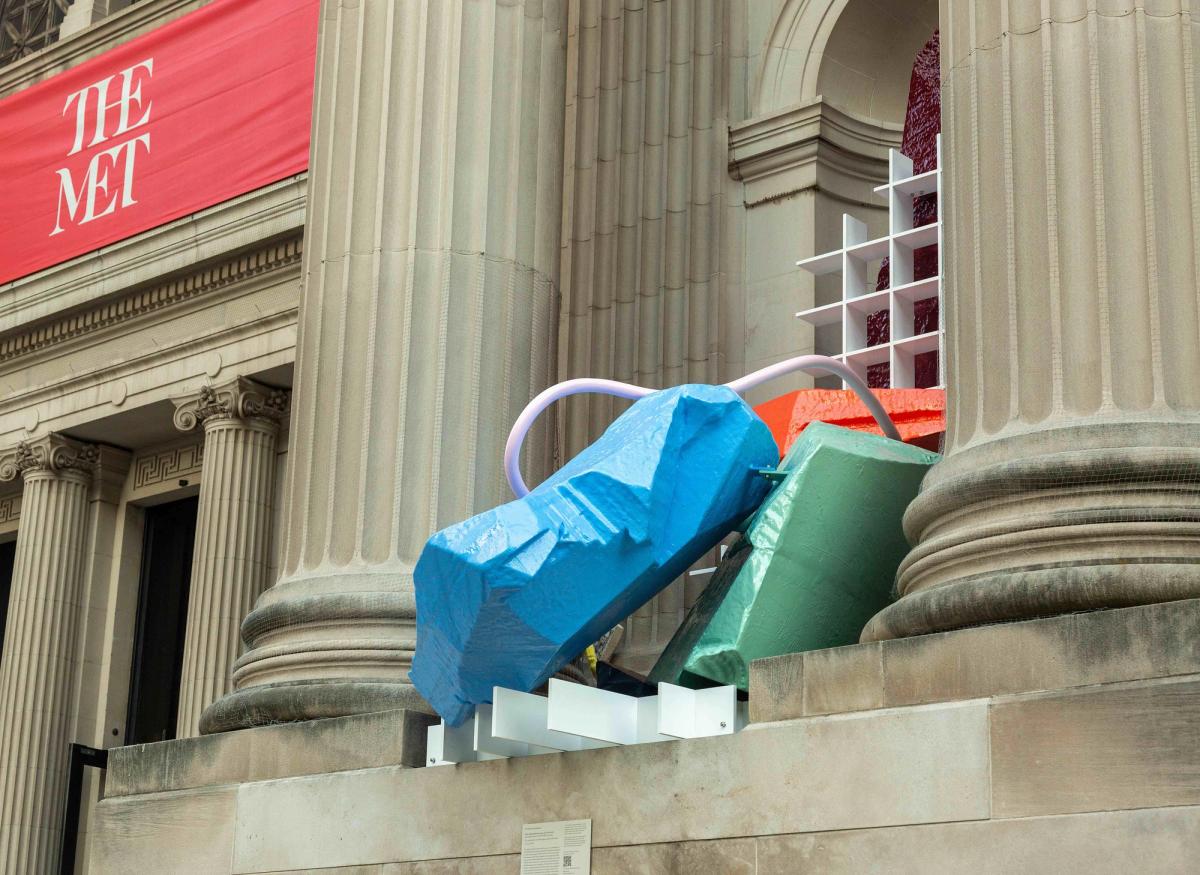Nairy Baghramian is living a dream of recognition. In June, not long after the Iranian-born Berliner won the $100,000 Nasher Prize, she received the rarely bestowed Nivola Award for Sculpture from the Museo Nivola in Sardinia. That same month, she had just enough time to open Jupon de Corps, a ten-year survey of her work at the Aspen Art Museum, before flying to New York, where the Museum of Modern Art had given her pride of place in its sculpture garden to install a newly made bronze. As if all of that weren’t dizzying enough, the Metropolitan Museum of Art chose her to fulfill its fourth annual Facade Commission, handing her the most prominent, and possibly the most challenging, public platform in the city.
“New York has always been good to me,” Baghramian noted, happily, at the unveiling of Scratching the Back, her reciprocal title for the four polychromed, cast-aluminium sculptures with which she met that challenge.
It is no minor issue to wedge abstract works that speak to current sensibilities into spaces created early in the previous century to house figurative statuary. For 117 years, that was too much to ask, and the two pairs of tall, deeply recessed, inaccessible niches on either side of the Met’s main entrance stayed vacant.

Installation view of Nairy Baghramian's Scratching the Back: Drift (sans Tortillon) at the Met
Courtesy of the Metropolitan Museum of Art. Photo by Bruce Schwarz
That changed only in 2019, when Max Hollein, the museum’s recently installed director, charged Wangechi Mutu with the daunting task of giving currency to the Neoclassical building’s façade. Considering that no other building in Manhattan has the Met’s grandeur, how could any individual works match it?
Mutu treated the niches like thrones for African bronze caryatids: freestanding, armoured goddesses reigning over, rather than serving, the white-dominated temple of the Met. Baghramian has chosen a more playful course. Rather than set her sculptures within the elevated recesses of the façade, where museumgoers on the ground tend to miss them, she brought them forward, to the lip of the building, creating the illusion of organic forms that are gliding or tumbling from their nests to face the public.
Walking south on Fifth Avenue, the first one I saw made me think of a grasshopper about to pounce, but when I got closer the piece, Drift (Tortillon jaune), looked more like a big, pink goose that was craning its taxi-yellow neck to catch some sun from its rocky blue and grey beach. Next to it, Drift (sans Tortillon) called to mind bright blue, orange and green boulders liberated from stasis by an earthquake and tossed into the gleeful pileup of a party game.
From across the street, the tall, purple and lime green “suitors” supporting the latticework of a more serene sculpture on the façade’s south side suggest a caftan that would not be out of place on the red carpet at the Met Gala. Its neighbour, two crystal shapes of navy and sky blue appropriate the posture of nuzzling couples on the museum’s front steps.

Portrait of Nairy Baghramian
Courtesy of The Met. Photo by Bruce Schwarz
I asked the multilingual Baghramian why she titled the four works in French, which she doesn’t speak. “Why not?” she replied. “New York is international. This is my homage to all the passersby.” And, she noted, “it sounds so nice”.
Since at least 2007, when Baghramian participated in that year’s Sculpture Project Münster, curators everywhere have been eager to work with her. In 2013, Mary Ceruti, currently the director of the Walker Art Center in Minneapolis, brought the artist to SculptureCenter in Queens for her first solo show in the US. In the same year, Baghramian had another show at the Art Institute of Chicago at the behest of Suzanne Ghez, an adjunct curator and former Renaissance Society director. Ghez had also been in Munster, and introduced the artist to Marian Goodman, who has represented her since 2016. There was no stopping her after that.
As a teenage refugee in Berlin, Baghramian’s first occupation was social work but, after a year’s training at Goldsmith’s College in London, she devoted herself to sculpture that, Ceruti says, responds to whatever contours and textures a space offers. Though often ungainly and suggestive of blobby, prosthetic body parts, Baghramian’s fusion of the biological and the geological with the architectural is almost inexplicably sensual and empathetic. Or comic. (Her piece in MoMA’s garden looks at once like a woman stretching her long legs in a pink recliner and fleshy pink slabs hurriedly rescued from a desecrated cemetery.)
At the Met, where the curator Akili Tommasino oversaw Scratching the Back, the four sculptures so strongly resemble the climbing structures common to playgrounds in New York City parks that museum guards may have a hard time keeping children from crawling over them. On the show’s opening day, fellow artists including Rachel Harrison and Leonor Antunes showed their support for Baghramian at a luncheon hosted by Goodman Gallery and Kurimanzutto that was crammed with curators from institutions well beyond the Met.
“As a museum director you’re always trying to find new uses for under-utilised spaces,” Hollein said. “And”, he added, echoing Baghramian, “you always want to be generous to the public”.
• Scratching the Back, until 24 May, Metropolitan Museum of Art, New York


